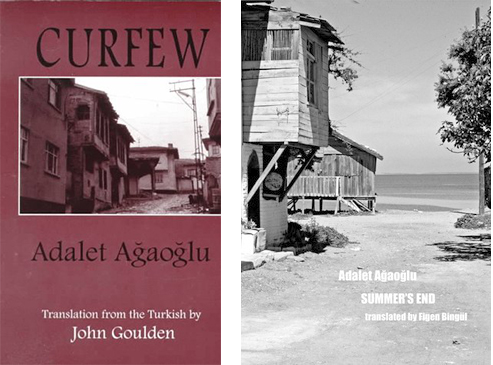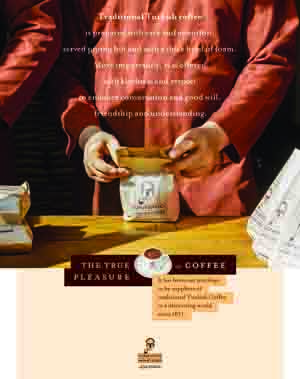Adalet Ağaoğlu, who died on Tuesday, July 14, at the age of 90, was one of the country’s most accomplished novelists in the last quarter of the 20th century, and very widely read in her own country, though undeservedly ignored elsewhere. Two of her novels, however, were translated into English – one of them by a British ambassador.
Adalet Ağaoğlu (seen above in a 1978 photograph by the artist Şahin Kaygun) – no relation of the famous late-Ottoman writer Ahmet Ağaoğlu – was born in 1929 in the small town of Nallıhan, on the western edge of Ankara province. She was the only daughter among the four children of Mustafa Sümer, a local cloth merchant who was a hafız (someone who had memorised the Koran) and evidently a man of keen understanding. All his children were to become successful modern professionals. When she was nine the family moved to Ankara, perhaps to enable the children to attend good schools. Adalet attended Ankara Kız Lisesi, the premier high school for girls in the capital, and then went on to read French language and literature at Ankara University’s Faculty of Language, History and Geography.
Her place in the mainstream of Ankara’s cultural life was established early when after graduating she obtained a post in TRT, Turkey's State Radio (and later Television) Broadcasting Corporation. Its first general director was Adnan Öztrak – regarded as left-leaning by conservatives – and during his tenure of office she became well known, producing dramas and sketches for radio and the stage over two decades and publishing poetry.
But when pressure started to build up on the TRT in 1970, threatening its autonomy and forcing some editorial changes, she resigned. A year later Öztrak himself was removed from his position by the military-backed government. Ağaoğlu by then was already well into a career of full-time novel writing.
When her first novel – Ölmeye Yatmak (‘Lying Down to Die’) – was published in 1973, Ağaoğlu was in her mid-40s and represented a generation of intellectuals for whom the reforms of Kemal Atatürk were beginning to take a sharp turn leftwards.
The novel appeared just as the spell of military rule were coming to an end and reflected a feeling among writers and intellectuals that a new life was about to begin. Indeed, its central character is a woman who, tired of her life, goes to a hotel with the intention of ending it, but who then, reflecting on her past, regains the will to go out and carry on. Ağaoğlu was a master of the flashback narrative, a technique she seems to have learned from William Faulkner.
The book was an immediate success, making Ağaoğlu a household name in Turkey for the rest of her life, and a prolific stream of publications followed, including a further eight novels.
Her range of styles and topics and her ability to imagine the inner lives of people seemingly totally unlike herself is dazzling. One of her main characters is Bayram, an unprepossessing guest worker, on the road from Germany back to his village and bringing home a honey-coloured Mercedes.

‘Lying Down to Die‘ (left) and ‘A Wedding Night‘ (centre) are part of Adalet Ağaoğlu's 'Dar Zamanlar' trilogy published between between 1973 and 1987. Above right: ‘A Chill on the Soul’ has been called the first erotic Turkish novel. All her books are very different in subject, though flashbacks and nostalgia are her stock in trade
In another novel, Bir Düğün Gecesi (‘A Wedding Night‘), she carries on elements of her first, but does so through the eyes of three completely different characters, intellectuals of the 1970s. A later book, Ruh Üşümesi (‘A Chill on the Soul’), 1987, is sometimes described as the first Turkish erotic novel, exploring through a mixture of poetic and psychological techniques the minds of a nameless man and woman who meet by accident when given the same table in a restaurant. Ağaoğlu’s style is sometimes compared to that of Virginia Wolfe, whom she indeed greatly admired when she came to read her, later admitting ruefully that, unfortunately, she had not done so until after she herself had stopped novel writing.
Ağaoğlu was overtly preoccupied with recent Turkish history and the direction it was taking, One of her underlying themes was the need to find a middle path between the reforms of Kemal Atatürk and the Islamic outlook of much of the country. In the 1970s she anticipated, indeed perhaps helped foster, the sceptical anti-Kemalist metropolitan leftist intellectual circles of the late 20th century. But her approach is considerably more nuanced than the starkly polarising perceptions among Western literary circles of the works of other Turkish novelists who are actually less popular among Turkish readers.

Curfew, University of Texas Press 1997 (in Turkish Üç Beş Kişi, Remzi 1984), is the better known of the only two of her novels to appear in English – the other being Summer's End, Talisman House 2008 (Yazsonu, Remzi 1980), translated by Figen Bingül with İlkan Taşkın, Zoe English and Edward Foster. Summer's End centres on the dreams of a Turkish woman, Nevin, to re-experience some of the happy memories she had with her lover, and her family and son at a holiday home by the sea, which she is trying to get ready for reuse, working with her neighbours there. As they depart, she remains alone waiting for the arrival of an unwelcome visitor from her past. Curfew's story takes place on a 1980 June evening on the eve of that year’s military coup, when political violence is at its height. Ağaoğlu deftly presented scenes which were overpowering realities in 1980 but were only memories four years later: political violence, a military coup, martial law and, above all, life under a curfew. As its translator writes, ‘Seven people – lovers, friends, relatives – are gathered in different parts of Turkey: Ankara, Istanbul, and the Anatolian town of Eskisehir. Throughout the evening, the characters play out their shared history, their disagreements, and their hopes.’
Ağaoğlu herself was always uncompromising in both her politics and ideas, frequently campaigning on high-profile issues and sometimes getting into trouble as a result. The successor volume to Lying Down to Die, the second part of a trilogy, got her into trouble with the martial-law courts for insulting the military. At a much later stage, when she was 80 years old, she was pelted with eggs by a protest group at a meeting where she spoke in support of the AKP referendum on constitutional changes. However, in her later years, she admitted that some of her earlier political judgements and recommendations had been wrong and apologised to her readers for them. She also suffered serious misfortunes but overcame them, in particular a car accident in the late 1990s which kept her in hospital for two years.
Adalet Ağaoğlu, novelist, born Nallıhan, Ankara province, October 23, 1929; died Ankara July 14, 2020.
Main image (top): Adalet Ağaoğlu,1978, by Şahin Kaygun (1951–92) (courtesy of Şahin Kaygun's heirs and Galerist, Istanbul) (Sanatçı ve Galerist’in izniyle)
An interview with Adalet Ağaoğlu from the BBC Türkçe archives room.








